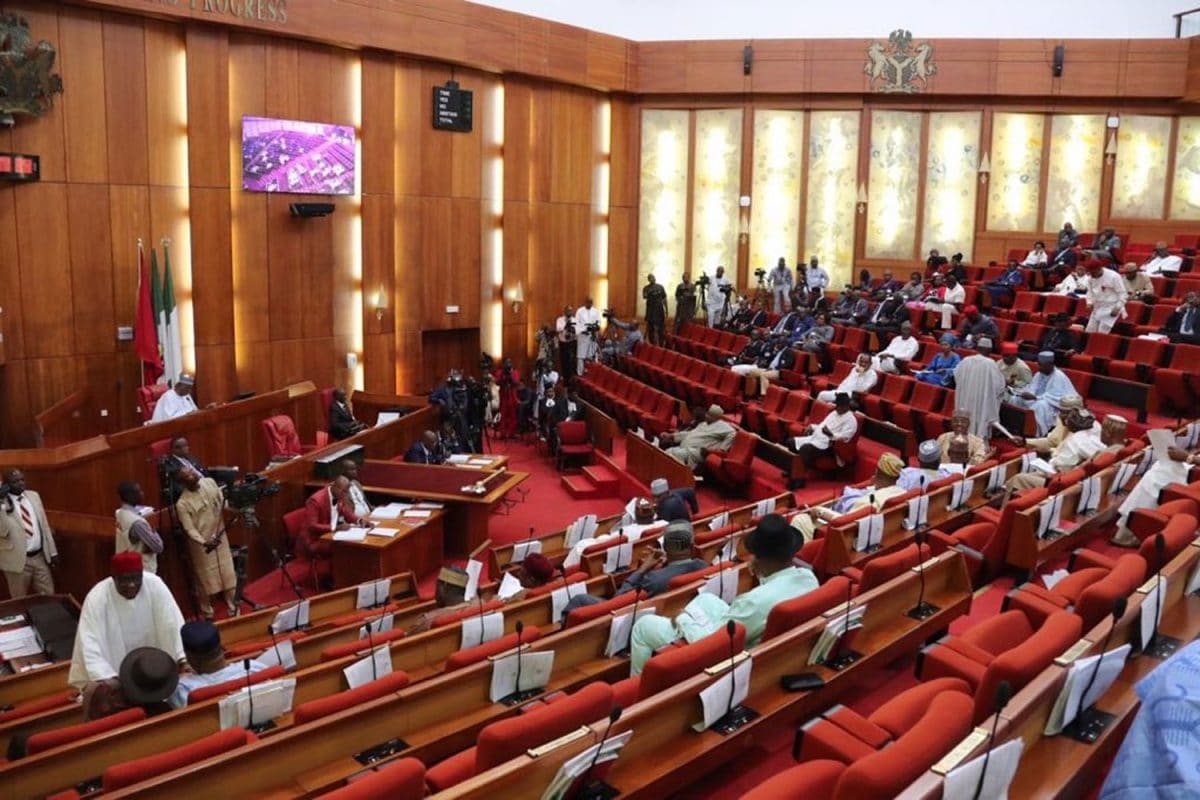
The Senate said, yesterday, that inefficiency on the part of the executive arm of government threatened the quick passage of the N10.509 trillion revised budget draft sent to the National Assembly two weeks ago.
It expressed disappointment on the failure of the Presidency to include a N186 billion health allocation in the entire budget. It therefore stepped down further consideration of the budget bill, insisting that the right thing must be done.
Senate President Ahmad Lawan was furious that the executive arm of government ignored part of the budget meant to take care of health emergencies caused by the COVID-19 pandemic.
Trouble for the revised budget began when Lawan called on the chairman of the Appropriation Committee, Jibrin Barau (APC, Kano North), to lay the report for the consideration and possible passage of the revised budget bill.
Barau stunned the Senate when he informed his colleagues that the Presidency refused to capture the N186 billion health vote as part of the entire N500 billion intervention fund for COVID-19 in the appropriation bill.
He said while N314 billion was captured, as part of the intervention fund, the balance of N186 billion proposed for the health sector, was not.
“Upon making such observation at committee level, we quickly informed the budget office of the omission last week. The budget office, as part of excuses given for the omission, said since the entire N500 billion was captured in the MTEF/FSP documents already passed by the Senate, there was no need for it to be fully captured in the budget.
“But we rejected that excuse in line with Sections 80 and 81 of the 1999 Constitution, which empowers the National Assembly to appropriate every single kobo for the executive before spending. On the strength of our superior argument, the budget office admitted the omission but promised to write a letter to us, to be used as evidence of helping them to include it. But the expected letter never came till now, making us not to be ready for presentation of any report.”
Angered by the submission, Lawan made it clear that the National Assembly would no longer tolerate inefficiency from persons responsible for preparing and submitting budget estimates.
He said: “Let me make this comment. I will advise those responsible for putting budget estimates for revision or whatever to be meticulous and responsible. The issue is that there was an omission on their (executive) side and they are requesting for the inclusion of N186 billion.
We have to insist on this because when we simply put figures without the document supporting the inclusion, somebody will say we are padding the budget. The National Assembly will be castigated and in some cases even insulted.”
This was as the Education for All in Nigeria (EFAN) and Coalition Against Corruption and Bad Governance (CACOBAG) urged the Federal Government to review upward budgetary allocations to education and healthcare.
This was disclosed in a statement jointly signed by the founders, Mr. Oyewole Dele (EFAN) and Toyin Raheem (CACOBAG), yesterday, in Lagos.
According to the groups, the budgetary allocation to these sectors should not be reduced. They noted that 26 per cent of the country’s yearly budget should go to education, stressing that no nation can survive without adequate funding of its education and health sectors.
They also noted that budgetary allocation to the judiciary ought not to have been reduced. “Judiciary, as an arm of the government, is very critical to the development of democracy. We cannot have optimal performance from the judiciary if it’s being grossly underfunded,” they said.
The groups further urged the government not to make the planned renovation of the National Assembly complex a priority.
Meanwhile, the Senate also resolved to probe moribund paper mills. It expressed worry that the mills, which were privatised, may go the way of the power sector where government had to provide interventions of N1.8 trillion without any headway.
This was sequel to a motion on ‘The Need to Revive Moribund Paper Mills in Nigeria’ sponsored by Senator Stephen Ekpeyong. “It seems to me that those who bought them never knew what they intended to do. Instead of creating employment, they are contributing to the unemployment status of the country negatively. That is why it was referred to the Senate Committee on Privatisation for further legislative action,” Ekpeyong said.
